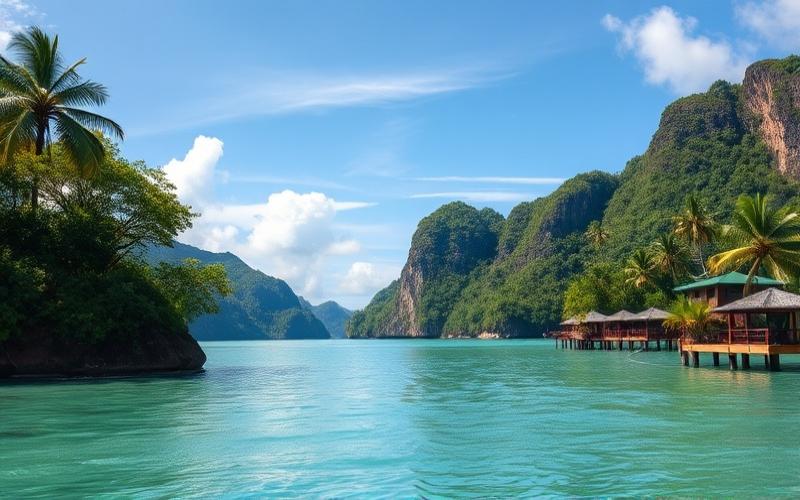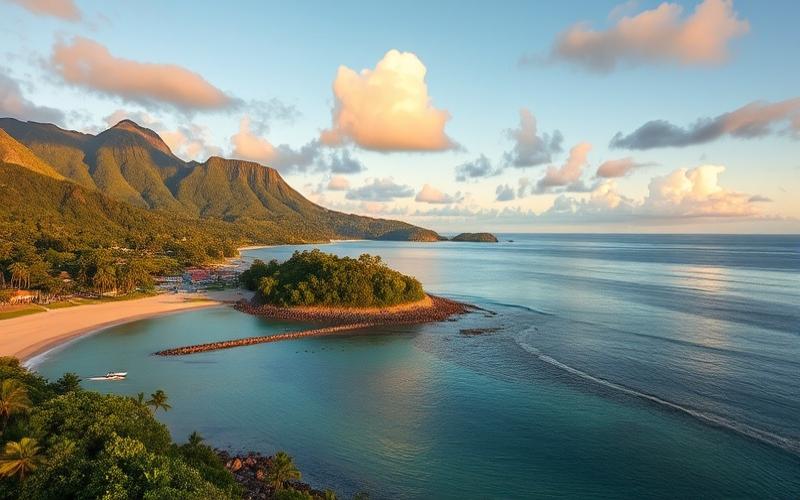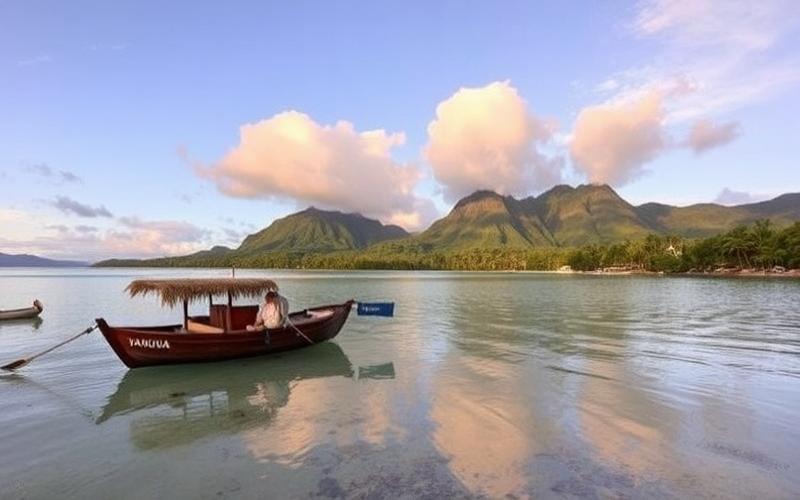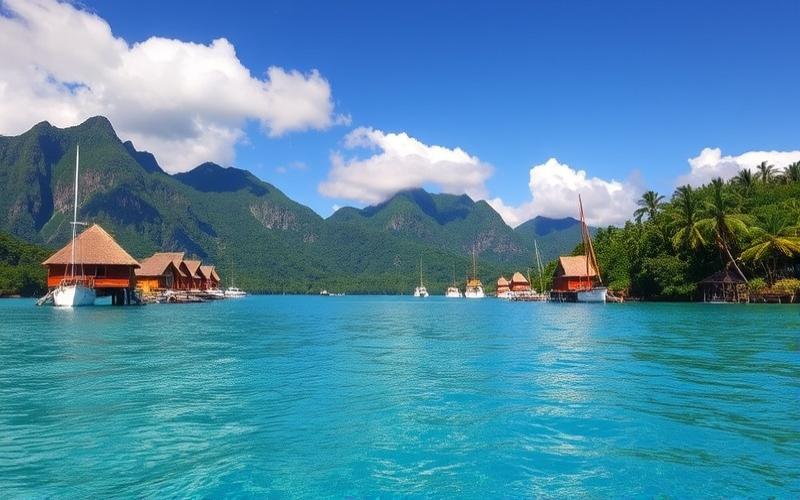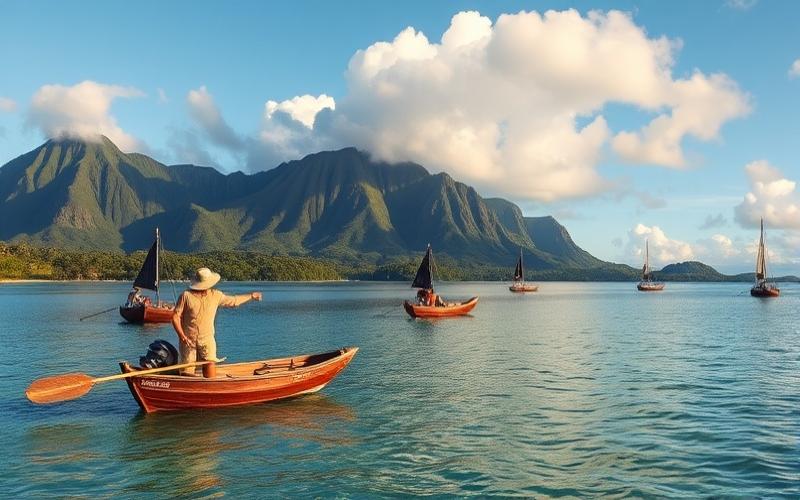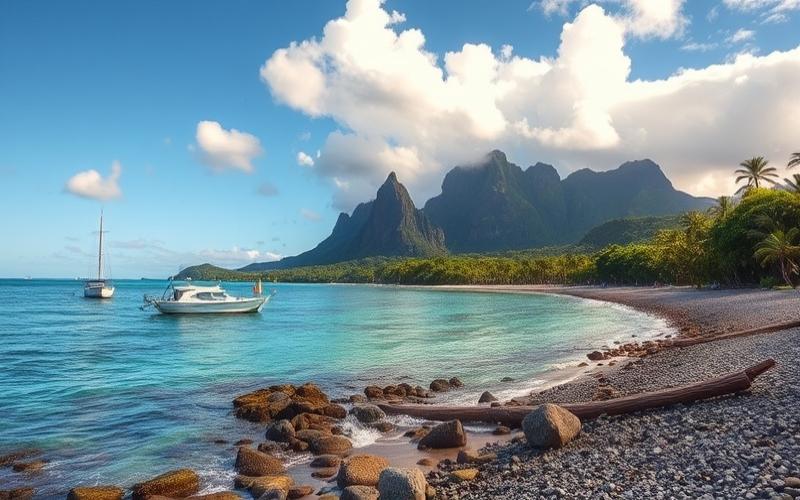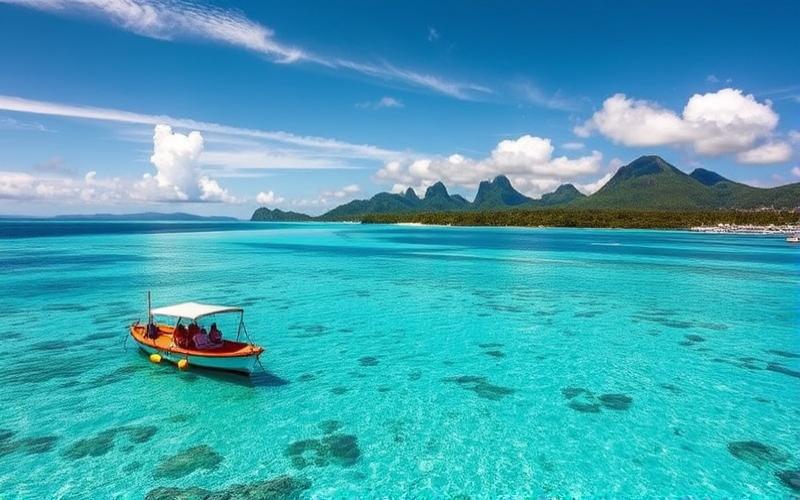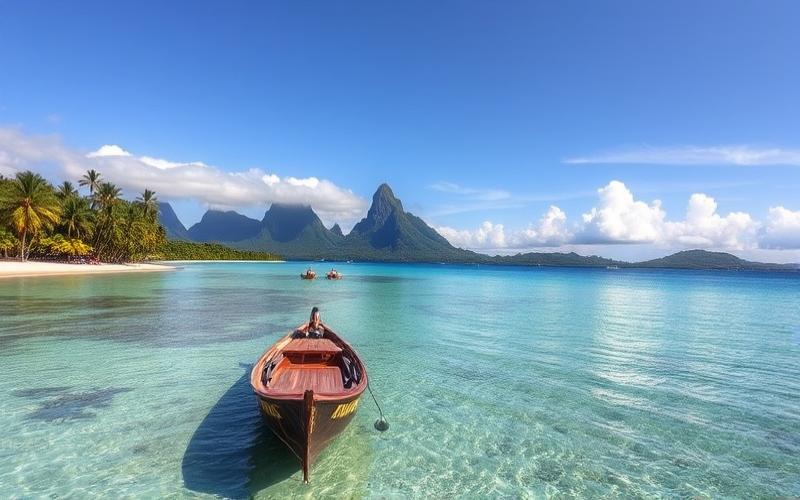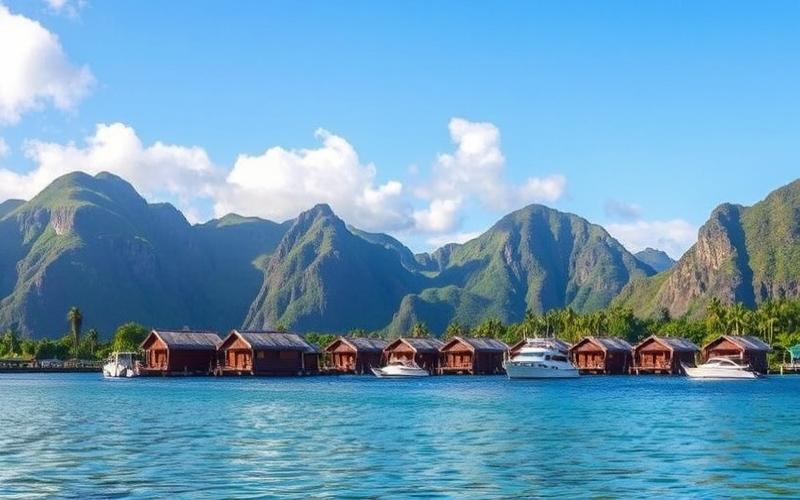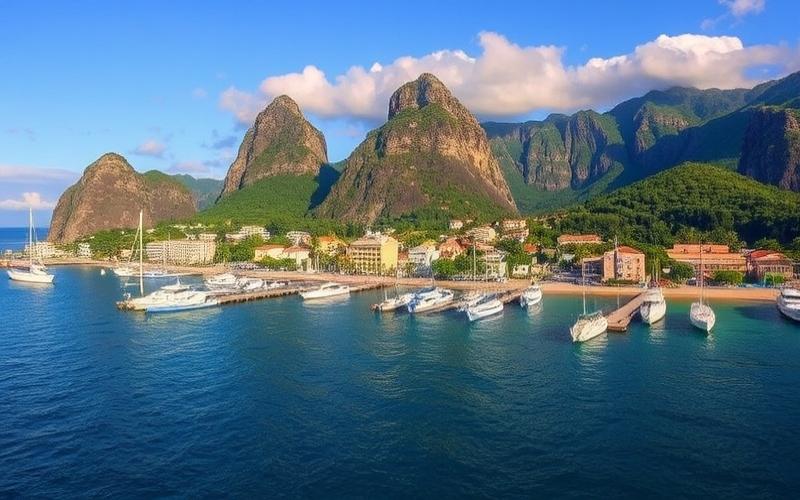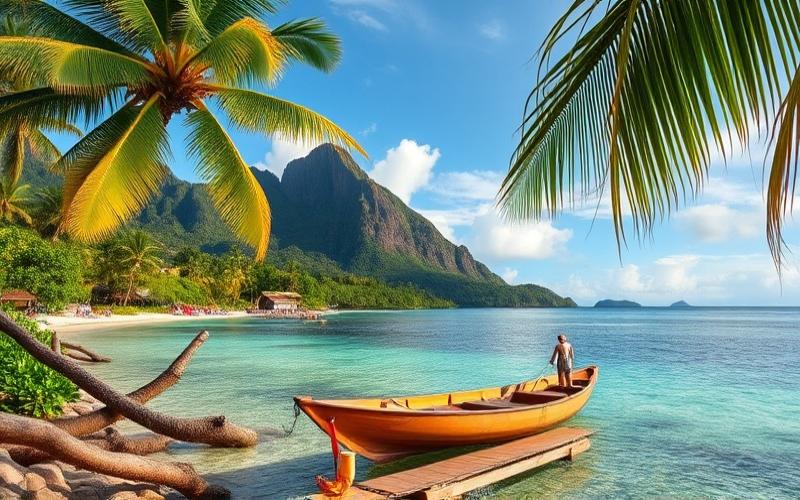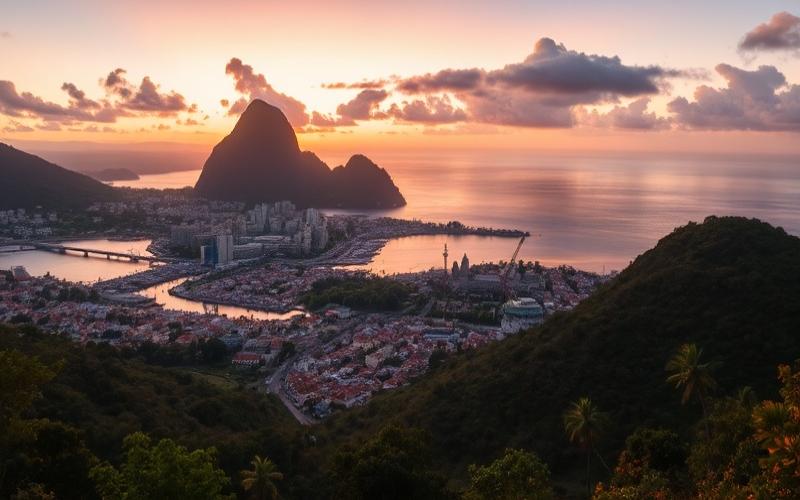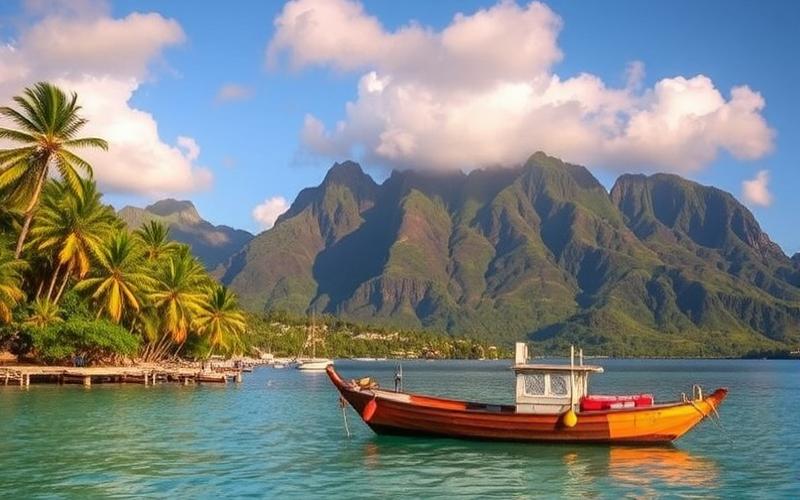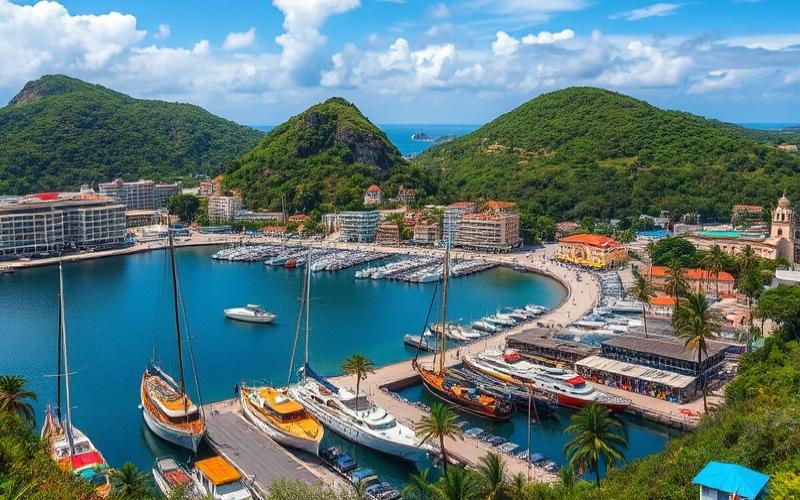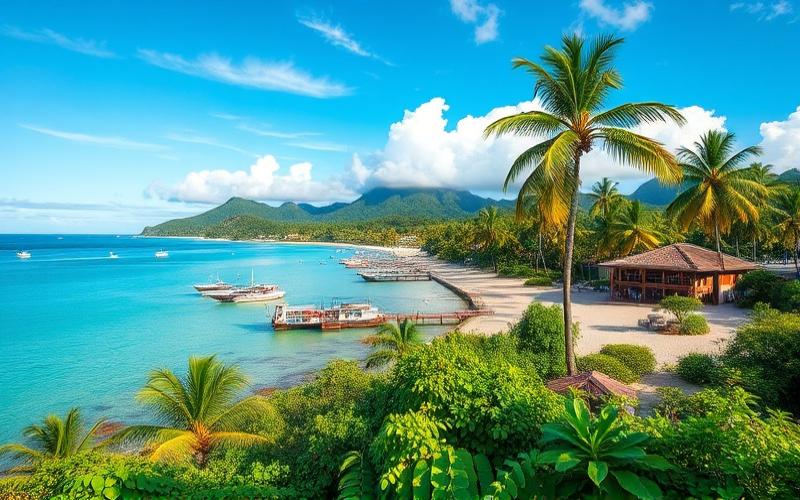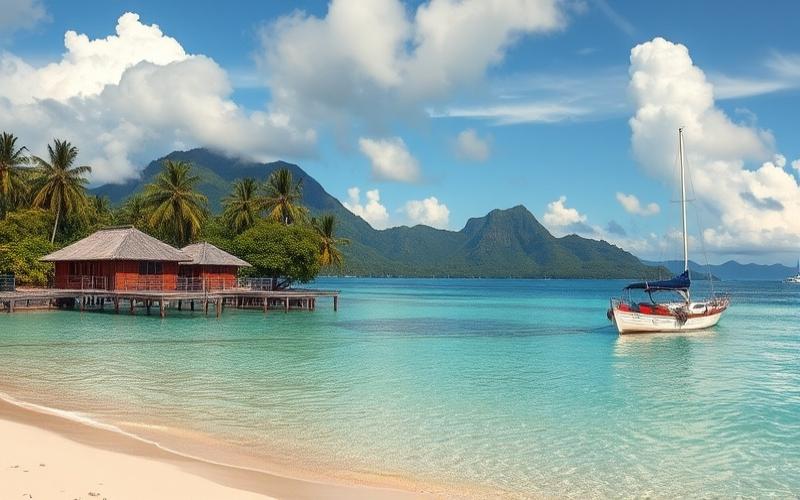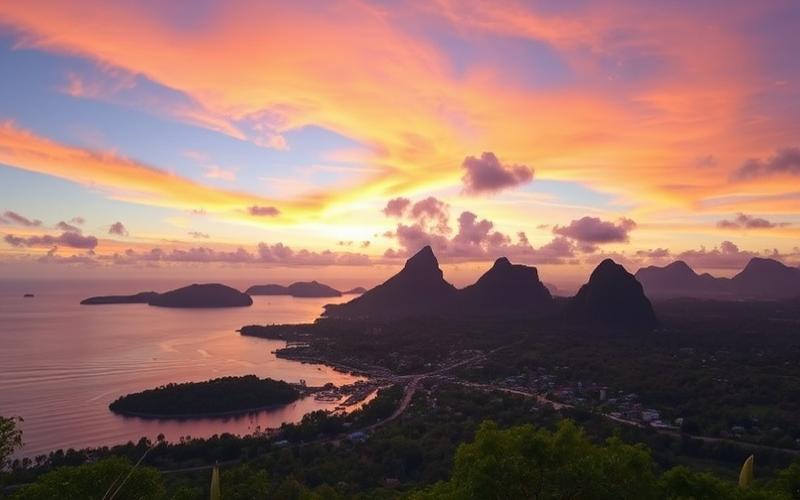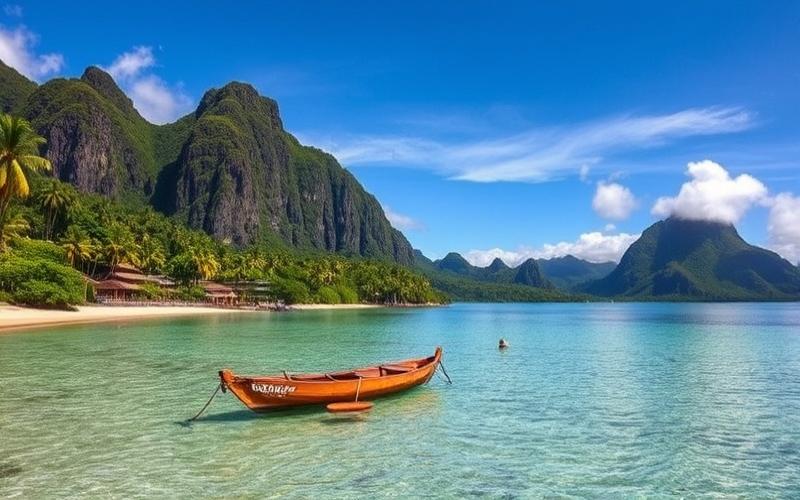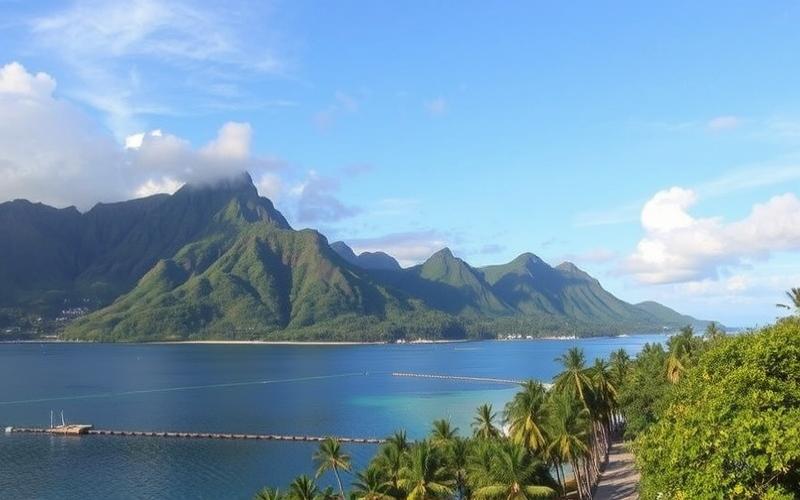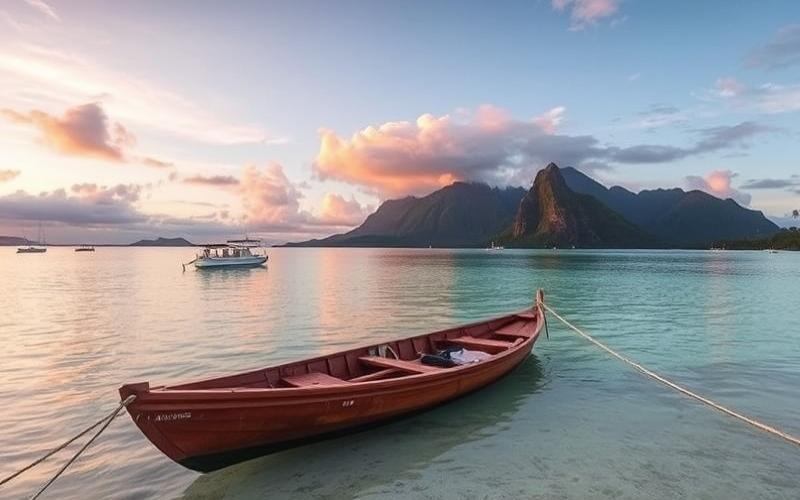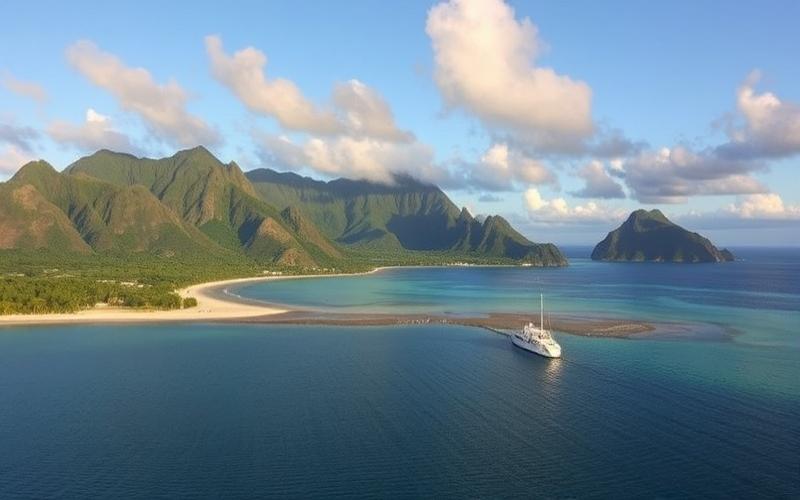
 Published on and written by Cyril Jarnias
Published on and written by Cyril Jarnias
In the Heart of the Pacific Ocean, Vanuatu is Experiencing a Notable Transformation in Real Estate
The emergence of co-living spaces is revolutionizing how people live and work across the archipelago. These shared living spaces meet the growing needs of digital nomads, international entrepreneurs, and locals aspiring to a more connected community.
Blending friendliness, flexibility, and architectural innovations, these places offer an innovative solution to increasing housing challenges, while integrating harmoniously with the local culture and environment.
A Trend Redefining the Traditional Real Estate Landscape
This trend is redefining Vanuatu’s traditional real estate landscape, attracting the attention of investors and residents seeking a new living experience.
Good to Know:
Co-living spaces often combine private areas with shared common zones, such as kitchens, workspaces, and relaxation areas, thereby fostering social interactions.
Upscale shared housing in Vanuatu stands out distinctly from traditional forms of shared housing through a series of premium elements that particularly appeal to young professionals, entrepreneurs, and freelancers seeking a balance between work life and an attractive living environment.
| Criteria | Traditional Shared Housing | Upscale Shared Housing in Vanuatu |
| Amenities | Basic, standard furniture | Fully equipped kitchen, home automation, private bathrooms, state-of-the-art appliances |
| Common Areas | Standard shared living room | Designer lounge, outdoor relaxation areas (pool, terrace), TV/cinema room |
| Workspaces | Rarely dedicated | Integrated coworking open space or individual offices |
| Location | Outskirts or mixed neighborhoods | Sought-after neighborhoods near the coastline or downtown |
| Included Services | Few or none | Regular cleaning, digital concierge |
Key Attractions for Young Professionals:
- Modern Amenities: Home automation (smart management of heating/air conditioning/lighting), fiber optic for ultra-fast internet essential for remote work and video conferencing.
- Optimized Shared Spaces: Open offices inspired by coworking spaces allowing everyone to work efficiently while promoting networking.
- Prime Location: Immediate proximity to Vanuatu’s iconic beaches or dynamic neighborhoods with easy access to shops and urban infrastructure.
- Personalized Services: Weekly cleaning included in the rent, responsive rental management via mobile apps.
Effects on the Local Real Estate Market:
- Rising rents in premium segments due to increasing demand for these “turnkey” homes perfectly suited to the needs of a connected and mobile workforce.
- Partial redirection of the existing rental stock towards renovation to meet the standards expected by this new, demanding clientele.
- Increased occupancy rates in some previously undervalued neighborhoods thanks to the targeted development of upscale offerings.
Demand Outlook:
The rise of young digital entrepreneurs seeking a flexible yet stimulating professional environment is strongly fueling this trend. Many wish to easily switch between their daily professional activities and an exclusive beachside lifestyle.
Freelancers also appreciate immediate access to a dynamic international community – conducive to networking – as well as all necessary services without logistical constraints or significant initial investment.
In Summary:
Upscale shared housing perfectly meets the current need of a hyper-mobile generation seeking maximum professional efficiency while fully enjoying the exceptional natural setting offered by Vanuatu.
Good to Know:
Upscale shared housing in Vanuatu is distinguished by its modern amenities such as fully equipped kitchens and fitness rooms, as well as its prime locations often near beaches or business centers. These spaces, which incorporate shared offices, meet the requirements of young professionals, entrepreneurs, and freelancers seeking a living environment where work and leisure coexist harmoniously. The growth of this type of housing, combined with the appeal of the island lifestyle, is stimulating the local real estate market, creating increased demand for flexible and connected homes. Furthermore, these shared housing options support an active and international community, thereby attracting a steady flow of talent eager to enjoy exceptional quality of life while pursuing their professional ambitions.
Shared spaces, or co-living, are experiencing notable growth in Vanuatu in 2025, supported by the arrival of expatriates, retirees, and digital nomads attracted by the affordable cost of living and a preserved natural environment. These new forms of housing integrate into a social fabric already marked by a strong local community tradition (“kastom”), where village life is based on sharing, solidarity, and respect for elders.
Main Co-living Trends in Vanuatu:
- Preference for human-scale structures fostering cultural exchange between locals and newcomers.
- Integration of common spaces (communal kitchens, shared gardens) to encourage friendliness.
- Development of hybrid residences blending flexible accommodation and coworking spaces adapted to remote workers.
Economic Benefits:
- Pooling of expenses (rent, electricity) facilitating access to housing for both local and foreign residents.
- Creation of direct jobs (managers, maintenance) and indirect jobs through the use of local producers for food or ancillary services.
- Stimulation of the real estate market through increased demand for flexible housing.
Community Benefits:
- Strengthening community living: these spaces promote intercultural interactions without threatening traditional values; they are often designed with the input or active participation of local communities.
- Support for integration: workshops around kava or discovery of local customs are regularly organized.
Concrete Examples:
| Project | Location | Special Features |
|---|---|---|
| Nambawan CoLiving | Port-Vila | Common spaces opening onto a tropical garden |
| Santo Village Hub | Luganville | Collaboration with local artisans |
| Pacific Roots Home | Efate | Cultural immersion program |
Impact on the Local Real Estate Market:
- Gradual increase in land value in some tourist areas or near urban centers.
- Emergence of mixed real estate projects integrating temporary and long-term accommodation.
Potential Challenges Faced by These Projects:
- Cultural Reluctance: some communities initially perceive these initiatives as a potential threat to their traditional way of life.
- Regulatory Adaptability: sometimes a lack of a specific legal framework governing these new types of accommodation.
- Land Pressure: risk that some land becomes financially inaccessible to historical residents due to external influx.
Strategies Adopted to Address These Challenges:
- Systematic involvement of customary chiefs during initial development;
- Implementation of charters guaranteeing cultural respect;
- Voluntary limitation of the number of units built to preserve local balance;
- Ongoing dialogue with municipal authorities regarding adapted urban planning and taxation;
Good to Know:
Co-living spaces in Vanuatu are reinventing community living by leveraging the archipelago’s cultural specificities, such as the importance of community and closeness to nature. Initiatives like the “Vanuatu Eco-Living” project benefit from strong local support due to their economic advantages, offering affordable housing and shared resources while creating a strong social network for its residents. These spaces also promote intercultural integration, attracting young professionals, digital nomads, and locals seeking a collaborative living experience. However, these projects face challenges such as limited access to infrastructure and the need to align practices with local traditions, which is often addressed through participatory management and active community engagement. The rise of shared spaces could transform the Vanuatu real estate market by making it more flexible and sustainability-focused, although their development requires careful adjustments to the country’s cultural and social dynamics.
In summary, co-living in Vanuatu is developing according to a hybrid model that leverages traditional collective strength while meeting modern expectations. It thus represents both an economic and social opportunity but requires continuous adaptation so that its benefits sustainably benefit everyone.
Digital Community and Co-living: The New Asset in Vanuatu Real Estate
The rise of digital communities has profoundly transformed the real estate market in Vanuatu, fostering the rapid growth of co-living spaces. These new living places meet the expectations of a connected and mobile generation, composed of both international nomadic workers and permanent residents seeking a flexible and collaborative lifestyle.
Advantages of Co-living Spaces for Digital Nomads and Residents:
- Facilitated networking thanks to the daily presence of individuals from varied professional backgrounds
- Optimized resource sharing (equipped common spaces, digital tools, high-speed internet access)
- Enriching community life fostered by the regular organization of social and professional events
- Reduced individual housing costs through the pooling of services (cleaning, security, leisure)
- Flexibility in the duration and nature of the stay (short or long stays possible)
| Advantage | Impact for Digital Nomads | Impact for Permanent Residents |
|---|---|---|
| Networking | International opportunities | Intercultural exchanges |
| Resource Sharing | Easy access to modern equipment | Reduced individual costs |
| Community Life | Increased sense of belonging | Creation of lasting bonds |
| Flexibility | Adaptation to professional rhythm | Possibility of flexible rental or ownership |
The acceleration of remote work since the pandemic has served as a catalyst for this evolution. The growing need for spaces adapted to distant work has generated sustained demand for co-living: these hybrid homes not only provide a conducive work environment but also a stimulating social setting.
Some Local Initiatives Illustrate This Dynamic:
- Recent development of residential complexes under the “Strata Titles Act” regime, facilitating access to modern condominiums adapted to urban co-living.
- Increased investments in sustainable real estate with the integration of eco-responsible collaborative spaces.
- Local calls for projects highlighting the creation or renovation of collective buildings intended for digital communities.
Economic and Social Effects on Vanuatu:
The enthusiasm around co-living is stimulating the local real estate sector with a steady rise in prices while encouraging new social diversity. Foreign investments are boosted by this innovative model that values both the entrepreneurial fabric and the local cultural heritage.
This trend thus fully participates in redefining the economic attractiveness of the territory while strengthening its social cohesion around the values shared by its new digital communities.
Good to Know:
In Vanuatu, the rise of co-living spaces is largely influenced by the growth of digital communities, offering an ideal setting for nomadic workers and permanent residents. These spaces promote networking by facilitating enriching interactions, while enabling efficient resource sharing. The increase in remote work due to the pandemic has reinforced the appeal of this model, thus bringing new dynamism to the local real estate market. Initiatives like the “Vila Hub” co-living project in Port Vila exemplify this trend, combining modern housing and collaborative workspaces. These not only contribute to the local economy by creating new job opportunities but also strengthen social cohesion by encouraging a community-oriented lifestyle.
Disclaimer: The information provided on this website is for informational purposes only and does not constitute financial, legal, or professional advice. We encourage you to consult qualified experts before making any investment, real estate, or expatriation decisions. Although we strive to maintain up-to-date and accurate information, we do not guarantee the completeness, accuracy, or timeliness of the proposed content. As investment and expatriation involve risks, we disclaim any liability for potential losses or damages arising from the use of this site. Your use of this site confirms your acceptance of these terms and your understanding of the associated risks.


